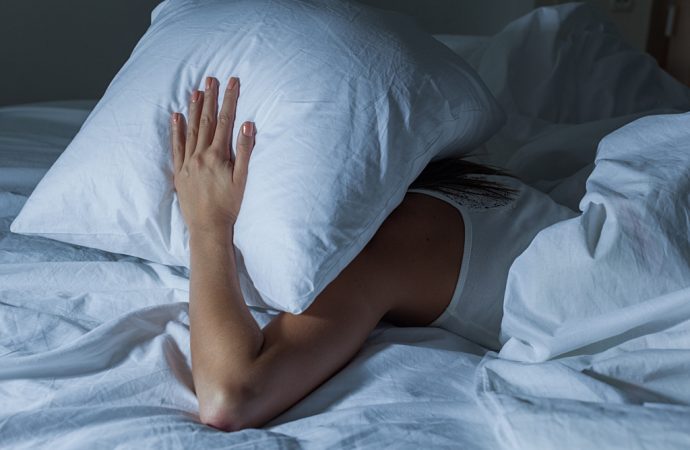Understanding Nighttime Pain Nighttime Pain, a phenomenon experienced by many individuals, presents unique challenges compared to pain experienced during the day. While pain itself is a complex sensory and emotional experience, nighttime pain often exacerbates these aspects, leading to disrupted sleep patterns and decreased overall well-being. In this comprehensive guide, we delve into the intricacies
Understanding Nighttime Pain
Nighttime Pain, a phenomenon experienced by many individuals, presents unique challenges compared to pain experienced during the day. While pain itself is a complex sensory and emotional experience, nighttime pain often exacerbates these aspects, leading to disrupted sleep patterns and decreased overall well-being. In this comprehensive guide, we delve into the intricacies of nighttime pain, exploring its causes, effects, and potential solutions.
The Nature of Nighttime Pain
Nighttime pain can manifest in various forms, including but not limited to:
1. Chronic Conditions
Conditions such as arthritis, fibromyalgia, and neuropathy often worsen at night. The reduced distractions and increased focus on bodily sensations during nighttime exacerbate the perception of pain.
2. Musculoskeletal Issues
Injuries or strains sustained during the day may become more pronounced at night due to reduced movement and relaxation. Additionally, poor sleeping positions can aggravate musculoskeletal pain.
3. Psychological Factors
Stress, anxiety, and depression can amplify nighttime pain by heightening sensitivity to discomfort and disrupting sleep patterns. Conversely, poor sleep quality resulting from nighttime pain can contribute to the development or exacerbation of mental health issues.

Image by: yendex.com
Differentiating Nighttime Pain from Daytime Pain
While daytime and nighttime pain may stem from similar underlying conditions, several factors distinguish nighttime pain:
1. Sleep Disruption
Nighttime pain often leads to fragmented sleep, characterized by frequent awakenings and difficulty returning to sleep. This disrupted sleep pattern can exacerbate pain perception and impair daytime functioning.
2. Circadian Rhythms
The body’s natural circadian rhythms influence pain perception, with pain thresholds typically lower during the nighttime. As a result, individuals may experience heightened sensitivity to pain during the late evening and early morning hours.
3. Psychological Impact
Nighttime pain can have profound psychological effects, contributing to feelings of frustration, hopelessness, and isolation. The inability to find relief or restorative sleep can further exacerbate these emotions, leading to a vicious cycle of pain and distress.
Managing Nighttime Pain
Effectively managing nighttime pain requires a multifaceted approach tailored to the individual’s specific needs and circumstances. Some strategies to consider include:
1. Pain Medication
Over-the-counter or prescription pain medications may provide relief from nighttime pain. However, it’s essential to consult with a healthcare professional to determine the appropriate medication and dosage, as well as any potential side effects or interactions.
2. Sleep Hygiene Practices
Implementing good sleep hygiene practices can promote better sleep quality and help alleviate nighttime pain. This may include establishing a consistent sleep schedule, creating a comfortable sleep environment, and avoiding stimulants such as caffeine and electronic devices before bedtime.
3. Relaxation Techniques
Mind-body techniques such as deep breathing, progressive muscle relaxation, and guided imagery can help reduce muscle tension, alleviate stress, and promote relaxation, potentially easing nighttime pain and improving sleep. Explore More About (Childs Health)
4. Cognitive-Behavioral Therapy (CBT)
CBT, a therapeutic approach that addresses the connection between thoughts, emotions, and behaviors, can be effective in managing nighttime pain and improving sleep quality. By identifying and challenging negative thought patterns and adopting coping strategies, individuals can learn to better manage their pain and sleep disturbances.

Photo by Andrea Piacquadio: https://www.pexels.com/photo/young-man-in-sleepwear-suffering-from-headache-in-morning-3771115/
5. Alternative Therapies
Complementary and alternative therapies such as acupuncture, chiropractic care, massage therapy, and herbal supplements may offer relief from nighttime pain for some individuals. It’s essential to consult with a qualified healthcare provider before trying any new treatment approach.
Conclusion
Nighttime pain presents unique challenges that can significantly impact an individual’s quality of life. By understanding the nature of nighttime pain, differentiating it from daytime pain, and implementing effective management strategies, individuals can improve their sleep quality, reduce pain perception, and enhance overall well-being. Remember, seeking guidance from healthcare professionals is essential to develop a personalized treatment plan tailored to your specific needs.
















